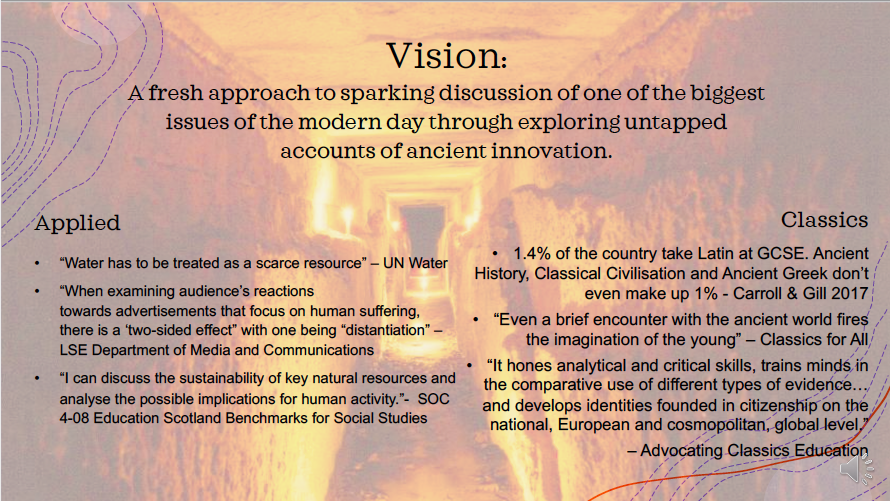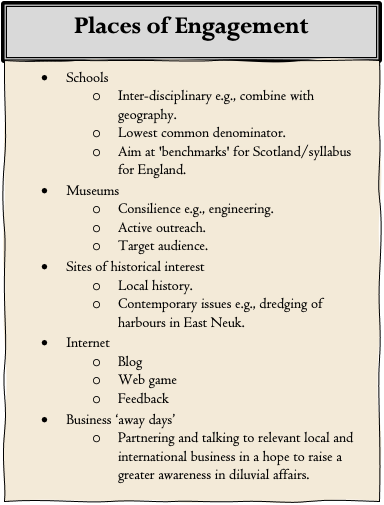The Frontinus Project
In 2020, a team of three students – Henry Bennett, Henry Kirk and William Laird – developed The Frontinus Project. Its aim is to spark discussion of a pressing modern issue, the supply of clean water to communities, through a series of ancient case studies.

Introduction

The aim of our project is to run a multimedia campaign in schools, museums, historical sites and online, bringing ancient and modern water supply challenges into productive dialogue. Each element will present audiences with compelling problems from the ancient world, such as mismanagement of public funds in aqueduct building at Nicomedia, maintenance challenges and environmental damage around water infrastructure around Rome, challenges in sourcing clean water, and water fraud. In inviting audiences to discuss and think creatively about solutions to these ancient problems, we aim to encourage discussion, understanding and problem-solving around an array of modern water supply issues that impact people’s daily lives in the 21st century. Above all, we aim to raise awareness of the complexity of ensuring access to clean water in many different places, and the intersecting factors that can help or harm.
Some of the most recognisable structures from the ancient world are the remains of Roman aqueducts – in Italy, France, Spain, Turkey and North Africa. Besides physical remains, there is a wealth of documentary evidence of the work that went into sourcing fresh water, moving it across vast distances, distributing it amongst public and private users, generating revenue from it, preventing illegal siphoning, and improving water quality. The range of challenges faced, the variety of solutions explored, the failures and successes: they all provide rich material for discussing both the logistics of establishing and maintaining secure water supply systems today and the ethical and legal issues around access and corruption. Water remains as vital to human life as it ever was, and there are striking continuities in the issues that states and organisations have faced, despite huge advances in water technology.
Our project capitalises on two distinct features of Classics: the ‘pull factor’ of Greco-Roman antiquity to draw people in (those evocative aqueduct arches, which are still popular tourist attractions today), and storytelling traditions which have got us used to the ancient world as a great location for ‘thought experiments’. From Homer to Pat Barker, Ovid to Lindsey Davis, tales from antiquity have helped us wrestle with contemporary challenges. Across our different strands of work, we will use storytelling about historical, evidence-based water supply problems to engage audiences in dialogue and reflection.

If you want to find out more about our project, you can watch our presentation above and look through our project slides below. Please tell us what you think by filling out our feedback form!
What do you think?

- Are the water supply challenges that different societies face today too different from those faced in antiquity for us to draw useful parallels? Or do you think there are enough overlaps for us to make use of ancient sources to help contemporary individuals and organisations problem-solve?
- If you were designing an ‘Applied Classics’ project to try and tackle an aspect of modern water management/supply, what problem would you choose and what ancient material would you turn to?
- What do you think of our proposed methods, and what other methods might you try?